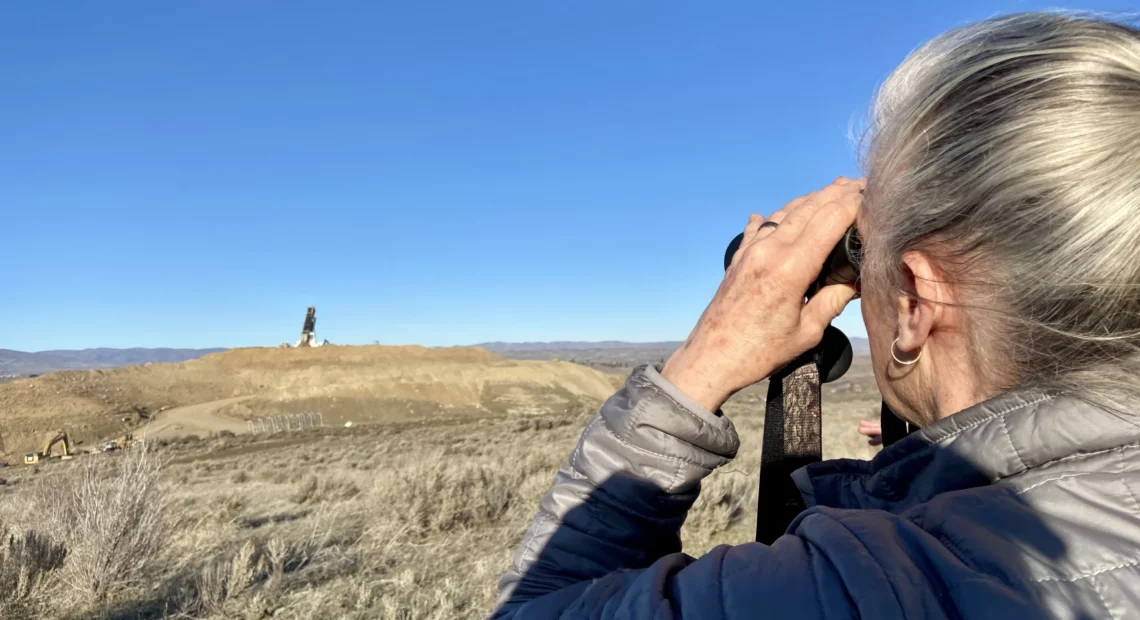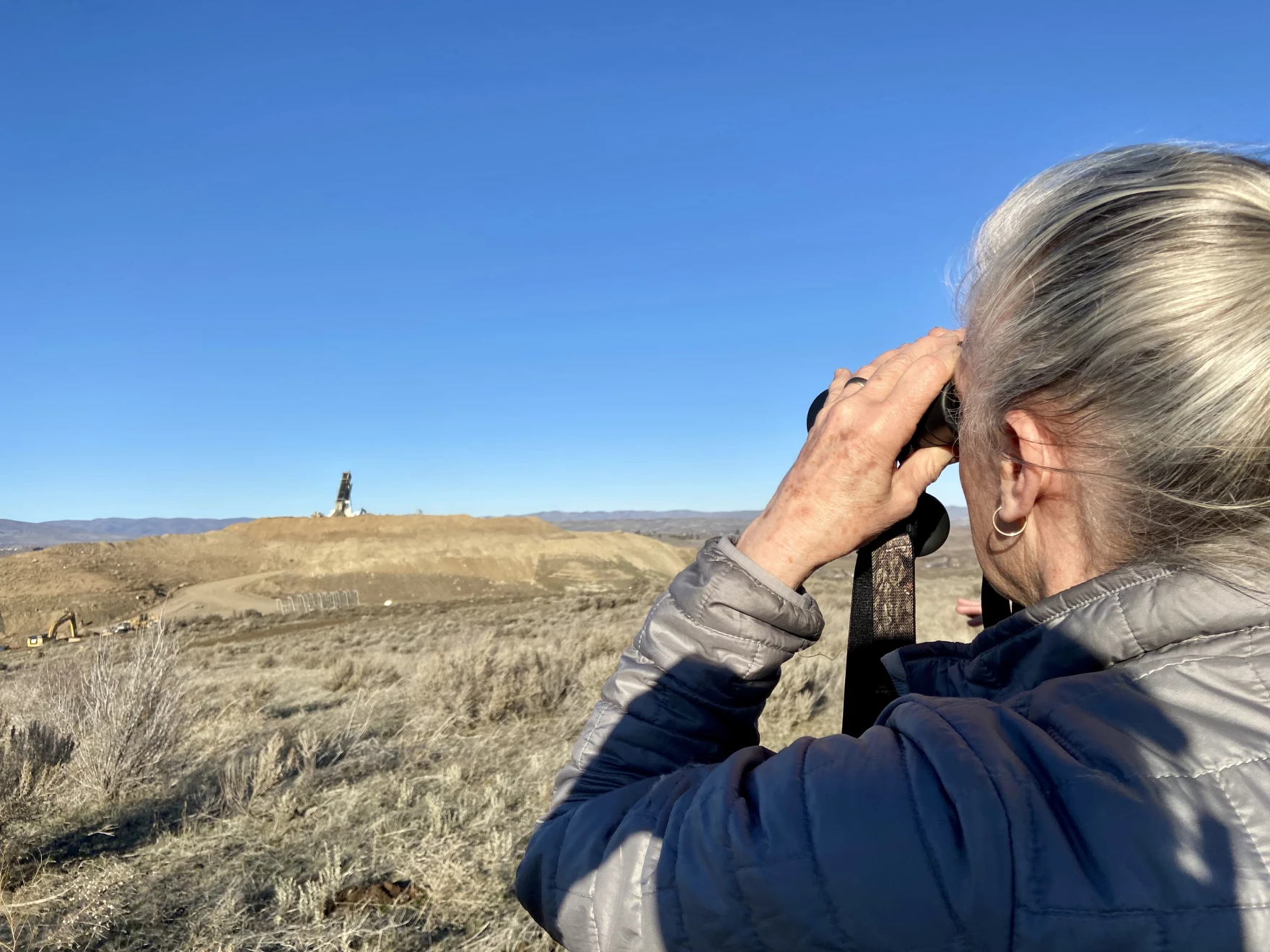
Landfill fire in Yakima is one step closer to being put out
Read
A troublesome landfill in Yakima has been on fire for months. Now, there’s a plan in place to smother the underground flames – although no one knows how long it will take.
“We want to make sure we’re doing the most effective but also the least invasive method to address the fire and hopefully get it extinguished,” said Steven Newchruch, an environmental health specialist with the Yakima Health District.
Neighbors say they’ve worried about the chemical smells and litter coming from the DTG Landfill since 2019. They noticed snow melting in weird places – what they thought could be signs of an underground landfill fire. They turned out to be right.
The landfill is supposed to take in construction debris – things like sheetrock or roofing materials. A lot of that waste is trucked in from the westside of the state. Something is likely mixing improperly, which could have led to the fire, said Scott Cave, a consultant for the neighbor’s advocacy group Friends of Rocky Top.
“I’m of the mind that they put in things they weren’t supposed to,” Cave said.
DTG could not respond to a request for comment.
Now, regulators with the Yakima Health District and the Washington State Department of Ecology have approved the company’s plan to pile three feet of soil on top of the fire. That should eventually put the fire out and keep dangerous gasses – like benzene and carbon monoxide – from reaching the air.
The other most-studied option would have been to excavate the burning material. However, Wilson said that could let flames jump to the surface and allow a gas plume to escape.
“If we were to do some kind of excavation operation, it would prove a lot of risk for the neighbors,” Newchurch said.
The soil will be three feet deep and will extend out 100 feet beyond the area that’s known to be on fire, Newchurch said. That will help prevent the fire from spreading and will cover any spot fires that might not have been detected, he said.
Neighbors say they worry the 100-foot extension will go onto people’s properties. They say they also worry those dangerous gasses, like benzene and carbon monoxide, will have nowhere to go but the groundwater.
“Our concern with that is because the landfill is unlined, it’s going to cause the gasses to go to the area of least resistance, which will be back into the substrate,” Cave said. “And then it could leave the actual landfill property and migrate onto neighboring land.”
Regulators say they’ll investigate those issues once the underground fire is extinguished. Until then, local and state regulators will serve as a backstop to the company’s plan to put the fire out – and conduct measurements of toxic gasses.
Right now, no gasses have been measured outside of the landfill facility. The Yakima Health District says it currently is not posing a risk to the community.
However, the District is asking people to sign up for the Alert Yakima emergency messaging system. There are emergency plans to evacuate people near the landfill if the District finds the gasses or flames become too dangerous.
If people are evacuated and have nowhere to go, DTG has agreed to pay for their stays at the local Home 2 Suites hotel. Volunteers will evacuate livestock, which will be housed at the State Fair park.
Neighbors can report any concerns to the health district or Yakima County Emergency Management.
Carole Degrave is the closest neighbor to the landfill. She’s monitored what she calls a putrid odor outside her home for years, labeling the smell each day on a scale of 1-10. She said she had felt dizzy, nauseated and had headaches when she stepped outside.
“I could not breathe. I had cloth over my nose and gloves on,” she said. “Oh, it was bad.”
She and Cave spoke after a public meeting Thursday about the landfill fire.
“As I was reading the physical conditions (from the chemicals), I swear, you’ve told me most of those, right?” Cave asked her.
“I did experience those,” Degrave said.
“We didn’t have any way to identify what the chemistry in the air was. And it sounds like if you do experience something as traumatic again, that you at least have the alternative to now go to Yakima Alert,” Cave said.
After years of raising her concerns, Degrave said she felt a little relief after the meeting.
“They really are listening,” she said.
















